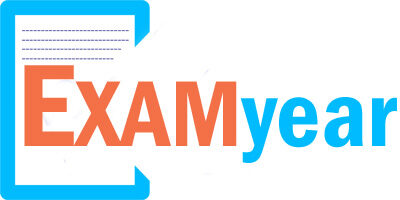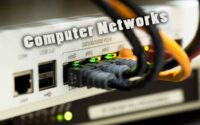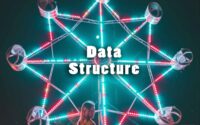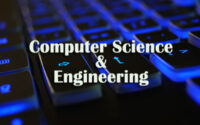Computer Networks Mock Test
The Free download links of Computer Networks Mock Test Questions and Answers Papers enclosed below. Candidates who are going to start their preparation for the Computer Networks Mock Test papers can use these links. Download the Computer Networks Mock Test Papers PDF along with the Answers. Computer Networks Mock Test Papers are updated here. A vast number of applicants are browsing on the Internet for the Computer Networks Mock Test Question Papers & Syllabus. For those candidates, here we are providing the links for Computer Networks Mock Test Papers. Improve your knowledge by referring the Computer Networks Mock Test Question papers.

Mock Test Questions and Answers on Computer Networking
1. Which of the following performs modulation and demodulation?
(a) Fiber optic
(b) Satellite
(c) coaxial cable
(d) modem
2. A local area network
(a) that connects thirty personal computers can provide more computing power than a minicomputer
(b) cannot become bogged down like a mainframe would if the load is too high
(c) both (a) and (b) above.
(d) none of the above
3. Which class of the software packages allow people to send electronic mail along a network of computer and workstations?
(a) Memory resident package
(b) Project management package
(c) Data communication package
(d) Electronic mail package
4. In OSI network architecture, the routing is performed by
(a) network layer
(b) data link layer
(c) transport layer
(d) session layer
5. Messages from one computer terminal can be sent to another by using data networks. The message to be sent is converted to an electronic digital signal, transmitted via a cable, telephone or satellite and then converted back again at the receiving end. What is the system of sending message called?
(a) Paperless office
(b) Global network
(c) Electronic mail
(d) Electronic newspaper
6. Compared to analogue signals, digital signals
(a) allow faster transmission.
(b) are more accurate
(c) none of the above.
(d) both (a) and (b) above
7. The basic Ethernet does not provide
(a) access control
(b) automatic retransmission of message
(c) addressing
(d) none of the above.
8. Which of the following communication modes support two-way traffic but in only one direction at a time?
(a) Simplex
(b) Three quarters duplex
(c) Half duplex
(d) All of the above
9. We can receive data either through our television aerial or down our telephones lines and display this data on our television screen. What is the general name given to this purpose. ?
(a) View data
(b) Tele software
(c) Tele text
(d) Video text
10. The economics of computing dictates
(a) sharing peripherals and data
(b) giving processors to people who need processing time and instantaneous response
(c) both (a) and (b) above
(d) None of the above
11. The word telematics is a combination of
(a) Computer
(b) Informatics
(c) Telecommunication
(d) both (b) and (c) above
12. In OSI networks architecture, the dialogue control and token management are responsibilities of
(a) session layer
(b) transport layer
(c) network layer
(d) data link layer
13. Local area network can transmit
(a) Faster than telecommunications over public telephones lines
(b) slower than telecommunications over public telephones lines
(c) using twisted-pair wiring or coaxial cables
(d) both (a) and (b) above
14. Which of the following is not a basic configuration used in data communication network?
(a) Computer/peripheral device configuration
(b) computer-to-computer communication
(c) computer to front-end processor communication
(d) communication through a data switch.
15. A data terminal serves as a (n)
(a) Effector
(b) Sensor
(c) none of the above
(d) both (a) and (b) above
16. The X.25 standard specifies a
(a) a technique for start-stop data
(b) DTE/DCE interface
(c) technique for dial access.
(d) data bit rate
17. The applications layer of a network
(a) establishes, maintains, and terminates virtual circuits
(b) defines the user’s port into the network
(c) consists of software being run on the computer connected to the network
(d) all of the above
18. Which one of the following is not a class of LAN:
(a) Broadband
(b) Fibre Optic
(c) Token bus
(d) CCITT
19. Which of the following data transmission media has the largest terrestrial range without the sue of repeaters or other devices?
(a) Microwave
(b) Hardwiring
(c) Laser
(d) Satellite
20. Layer one of the OSI model is
(a) physical layer
(b) transport layer
(c) link layer
(d) network layer
| Practice Question | Objective Papers |
| Quiz | Important Papers |
| Mock Tests | Previous Papers |
| Typical Question | Sample Question |
| MCQs | Model Papers |
21. What is the name of the computer based EMMS that provides a common forum where users can check in at their convenience, post messages, actively exchange ideas and participate in ongoing discussions?
(a) Bulletin board system (BBS)
(b) Videoconferencing
(c) E-mail
(d) Teleconferencing
22. What was the first Network that was made available?
(a) DECNet 1980
(b) IBM Token Ring 1985
(c) Novell Netware
(d) IBM PC Network 1984
23. What does the acronym (ISDN) stand for?
(a) Indian Standard Digital Network
(b) Intelligent Services Digital Network
(c) Integrated Services Digital Network
(d) Integrated Services Data Network
24. The process of converting analogue signals into digital signals so they can be processed by a receiving computer is referred to as :
(a) Modulation
(b) Demodulation
(c) Digitising
(d) synchronizing
25. What are the most commonly used transmission speeds in BPS used in data communication?
(a) 9600
(b) 2400
(c) 1200
(d) 4800
(e) all the above
26. To connect a computer with a device in the same room, you might be likely to use
(a) a coaxial cable
(b) a dedicated line.
(c) a ground station
(d) all of the above
27. One important characteristic of the hub architecture of ARC-net is
(a) directionalized transmission
(b) multiple virtual networks
(c) access control & addressing
(d) alternative routing
28. Which of the following might be used by a company to satisfy its growing communication needs?
(a) Front-end processor
(b) Controller
(c) Multiplexer
(d) Concentrator
(e) all the above
29. A central computer surrounded by one or more satellite computers is called a
(a) bus network
(b) ring network
(c) star network
(d) none of the above
30. The standards for packet switched communication is
(a) CCITT X.25 and X.75
(b) ARCNET
(c) Open Systems Interconnection
(d) CCITT F.200
31. What function does a serial interface perform in data communication?
(a) Converts serial data into audio data signals
(b) Converts analog signals into digital signals
(c) Converts parallel data into a stream of bits and vice-versa
(d) Decodes incoming signals into computer data
32. Which of the following statements is incorrect?
(a) The difference between synchronous and asynchronous transmission is the clocking derived from the data in synchronous transmission
(b) Half-duplex line is a communication line in which data can move in two directions, but not at the same time.
(c) Teleprocessing combines telecommunications and DP techniques in online activities
(d) Batch processing is the preferred processing mode for telecommunication operations
33. A 2400-character text file has to be transmitted by using a 1200 baud modem. Can you tell how long will it take?
(a) 2 seconds
(b) 10 seconds
(c) 20 seconds
(d) 12 seconds
34. Auto dialling allows
(a) you to dial up phone numbers by typing them on the keyboard
(b) a personal computer to answer incoming calls without human assistance
(c) both (a) and (b) above
(d) none of the above
35. Which of the following statements is correct?
(a) Protocol converters are the same as multiplexers
(b) Protocol converters are the same as TDMs
(c) Protocol converters are usually not operated in pairs
(d) Protocol converters are usually operated in
36. How many OSI layers are covered in the X.25 standard?
(a) Two
(b) Seven
(c) Three
(d) six
37. The most flexibility in how devices are wired together is provided by
(a) bus networks
(b) ring networks
(c) star networks
(d) T-switched networks.
38. Internet is
(a) networks run by the US Government
(b) a network run by the United Nations Organisation
(c) a loose networks not owned by anybody but used by all universities and governments around the globe
(d) a commercial information service run by Ziff Davis Co, in US
39. Which of the following is possible in a token passing bus network?
(a) in-service expansion
(b) unlimited number of stations
(c) both (a) and (b) above
(d) unlimited distance
40. Which of the following is not a transmission medium
(a) telephones lines
(b) modem
(c) coaxial cable
(d) microwave systems
41. A network that requires human intervention of route signals is called a
(a) bus network
(b) ring network
(c) star network
(d) T-switched network
42. Which of the following will provide end-to-end digital connection for all voice (digitized), data, telemetry, facsimile and video applications?
(a) PST
(b) SNA
(c) ISDN
(d) CCITT
43. Name of the device that connects two computers by means of a telephone line is
(a) Tape
(b) Modem
(c) Cable
(d) bus
44. The number of separate protocol layers at the serial interface gateway specified by the X.25 standard are
(a) 4
(b) 6
(c) 2
(d) 3
45. Commonly used unit for measuring the speed of data transmission is
(a) Bytes per second
(b) Baud
(c) Bits per second
(d) either (b) and (c) above
46. The slowest transmission speeds are those of
(a) twisted-pair wire
(b) fiber-optic cable
(c) coaxial cable
(d) microwaves
47. Which of the following does not allow multiple uses or devices to share one communication line?
(a) Multiplexer
(b) Controller
(c) Doubleplexor
(d) concentrator
48. Working of the WAN generally involves
(a) telephone lines
(b) satellites
(c) microwaves
(d) all of the above
49. Which organization draws up standard for modems?
(a) CCITT
(b) AT & T
(c) BELL
(d) Hayes
50. Many data communications networks have been established which provide a wealth of on-demand information services to people at home. What is the name of the system which provides an interactive, graphics-rich service that permits user to select what they want?
(a) Teletex system
(b) Videotext system
(c) Fax system
(d) Microwave system



